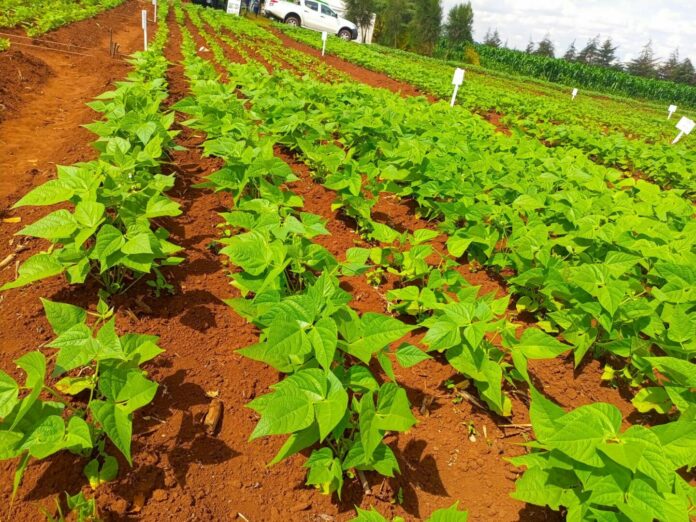The Kenya Agricultural and Livestock Research Organization (KALRO) Centre Director Esther Gikonyo has called on farmers to adopt liming to reverse declining soil fertility which has led to reduced food production.
Gikonyo, who was speaking on Friday during an Exhibition at the National Agricultural Research Laboratories (NARL) in Kabete, said over 50 percent of soils in the country’s high and medium rainfall areas are acidic.
‘’What we need to do as a nation is to lime the soils because 63 percent of the soils that are in Kenya’s high and medium rainfall areas have a problem of soil acidity. Therefore, to achieve food security, we need to adopt liming as a technology,’’ Said Gikonyo.
According to Gikonyo, liming will not only wipe out the problem of reduced crop production but will also save farmers from high production costs.
‘’The beauty of using lime is that once we apply lime one year, it goes for about two-three years, and hence it becomes cost-effective,’’ she added.
Farmers embrace smart insurance to guard against climate shocks
Despite the importance of the material on Kenyan lands, its adoption is still low, primarily due to a lack of awareness.
Gikonyo said plans to create programs that will sensitize farmers on the use of lime are underway, adding that farmers who have already moved a mile to lime their soils have registered a tremendous increase in yield.
According to a report by AGRA-Alliance, acidity levels in most farms in Kenya are higher as a result of the continuous use of artificial fertilizer.
Continuous use of Diammonium Phosphate (DAP) has been blamed for damaging soil, but farmers have shown less interest in other types of the supplement, arguing it gives better yields.
According to KALRO, the fertilizers to be used on each farm should depend on soil status. As such, the soil needs to be tested so as to determine the pH and also know the elements that are missing to fix them.
However, farmers have been accessing fertilizer under the government-supported subsidy program without regard for soil type and status.
Equity Group partners with CFAO Group to support farmers in increasing their output
While some are unaware of the importance of knowing the status of their soils, others have lamented the high cost of testing.
A sample of soil tests at the national laboratory goes for Sh1,500, but a farmer requires about three sample tests from different points of the farm.
Agriculture cabinet secretary Mithika Linturi early this week said his ministry will test soils collected from farmers to implement the intervention measures.
“Moving forward, we will ensure that farmers get soil-specific fertilizer so they do not use inputs that worsen the situation,” Linturi said after touring NCPB depots in North Rift to inspect the ongoing distribution of subsidized fertilizer to farmers.








